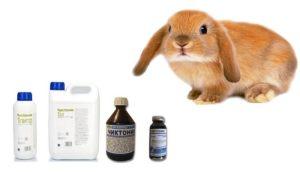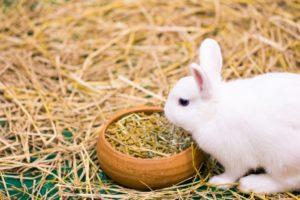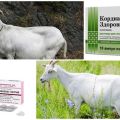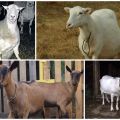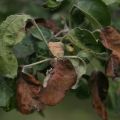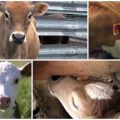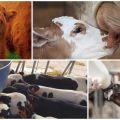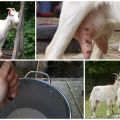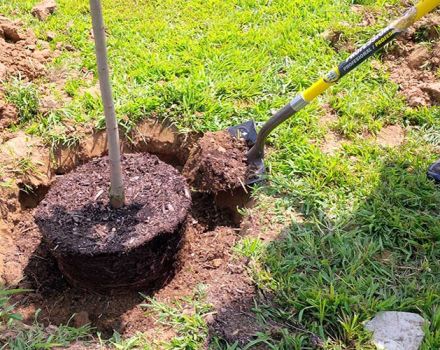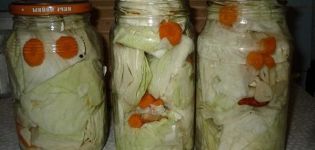What to do if your rabbit doesn't eat or drink, and how to avoid common problems
Refusal of food and water is an alarming sign that should concern any breeder, regardless of whether he breeds animals professionally, as an amateur or keeps them as pets. Therefore, it is extremely important to know what to do when the rabbit is not eating or drinking, which may be causing this condition. This will help to recognize the danger in time and prevent recurrence in the future.
Content
Reasons and actions to be taken if the rabbit refuses food and water
Rabbits should eat and drink clean water regularly to maintain a healthy metabolism. If the animal refuses to eat and drink, this indicates problems in the body that need to be identified and corrected. They are not always associated with diseases, so rabbit breeders need to know what exactly can cause such conditions.
Gastrointestinal problems
If the rabbit lies motionless on its side, does not want to eat or drink, and traces of blood are visible in the feces, one can suspect a frequent occurrence - the accumulation of hairballs in the stomach. All animals suffer from this, but those with thick, fluffy and long fur are more susceptible to disease.
When caring for a fur coat, the animals swallow wool. It gets lost in lumps that can reach a considerable size. Obstruction occurs, and the animal may die if surgical care is not provided in time. In mild cases, a small amount of petroleum jelly may help.
Infectious diseases
Rabbits are susceptible to many infections, so if your pet stops eating and drinking water, does not feel well and does not look good, urgent measures must be taken. In most cases, an appeal to a veterinarian will be required, since it is impossible to determine numerous diseases by external signs without testing.

Poor oral health
If the rabbit is inactive, does not try to eat, even if it is tempted by its favorite delicacies, attention should be paid to the state of its mouth. In rabbits, teeth grow constantly, so if they are not ground, they will become huge and damage the mucous membranes. These animals are prone to malocclusion, a disease in which the teeth grow overgrown and become tusks.
Rabbits need to be given solid food - roots, tree branches, grain, so that they can grind their teeth. If malocclusion is the cause, the defects will have to be manually corrected on a regular basis.
Improper feeding
In the event that a sluggish and inactive rabbit is not just a whole herd, you can suspect that something has gone wrong with the diet. The reasons may be as follows:
- Excessive, insufficient, unbalanced feeding.
- Lack of vitamins and minerals.
- The abundance of succulent feed, white cabbage causes increased fermentation in the intestines, can cause a lack of appetite and even disease.
- Dirty, damp food. The ingress of faeces, spilled water and contaminants on food causes health problems, so the condition of the food must be monitored, removing spoiled or stained ones in time.

Rabbits should be provided with complete feed, given on schedule, and veterinarian recommendations should be followed.
Stressful state
Weakness, refusal to eat and drink can be a manifestation of a stressful situation.
Causes of stress:
- Recent purchase of an animal.
- Moving from one room (cell) to another.
- Adding a new rabbit, possible aggression from other animals.
- In pets, stress is triggered by excessive attention to them from people, especially young children. If the animal is often squeezed or annoyed when it is resting or eating, this can provoke bouts of aggression and depression. As a result, stress develops, food refusal.
- The rabbit after the birth, especially the first one, can be in a stressful state, refuses to eat and can harm herself and her offspring. Therefore, she and her offspring are provided with comfortable conditions, peace, proper feeding, warmth and cleanliness.

Rabbits are nervous, sensitive creatures, so the owners need to first deal with feed and cages, and only after that purchase animals.
Allergy
Rabbits can develop allergies, often alimentary, that is, associated with the use of certain foods, but in some cases, the animals can react to dust, dust or pollen, detergents, cosmetics and perfumes if they live as pets.
The reaction is manifested by lacrimation, edema of the eyes and mucous membranes, refusal to eat, damage to the coat. The animal can comb the skin until it bleeds, the ears and genital area are especially affected.

Poisoning
Rabbits can chew on anything, from food to their own cages. They are able to gnaw inedible and even toxic things, poisonous plants, which leads to poisoning. In addition to refusal to eat and drink, poisoning, in contrast to indigestion, is accompanied by profuse vomiting and diarrhea. The condition of the animal is rapidly deteriorating, aggravated by dehydration and can quickly lead to death if urgent measures are not taken.
Wrong diet
Monotonous feeding leads to the fact that rabbits tend to "fill their belly" with the food that is given to them, because they are not satiated or lack nutrients. In their stomach, they can form a dense lump of food eaten, which provokes pain, indigestion and feeling unwell.
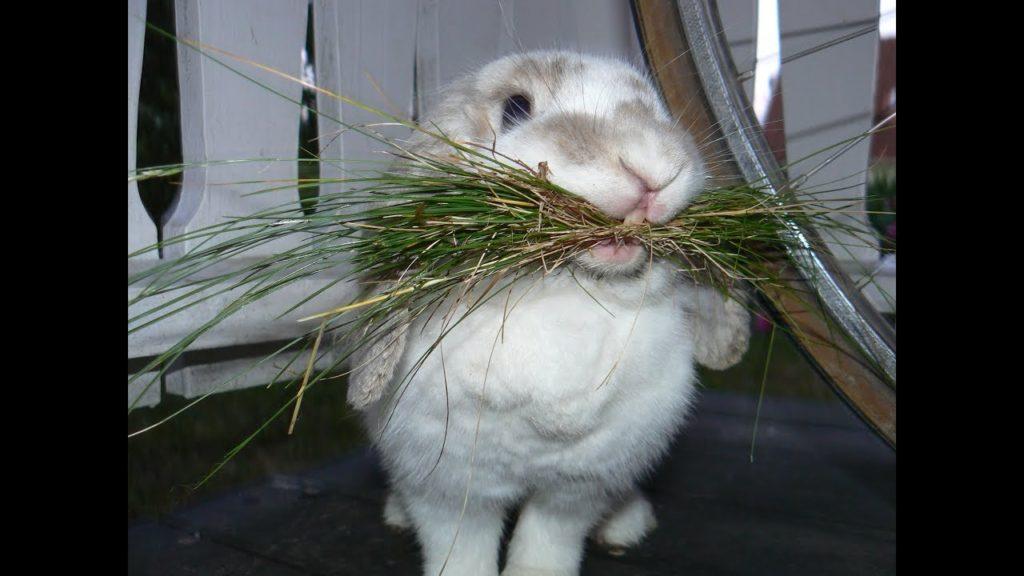
Trauma
Trauma can be a reason for refusing to eat, especially if the stomach is affected. Any serious damage is accompanied by lethargy, weakness, refusal to eat, and a change in appearance. Domestic rabbits suffer from falls from furniture and electric shocks, bruises with feet or doors, cages being pressed against the door, and other animal bites. If the rabbit roams freely around the apartment or house, the owners need to be very careful and careful.
Catarrh of the stomach
There are the following types of catarrh:
- Sour, characterized by profuse mucous secretions.
- Alkaline, with loose stools.
- Colds, with bloody stools and rhinitis. It occurs with severe hypothermia.
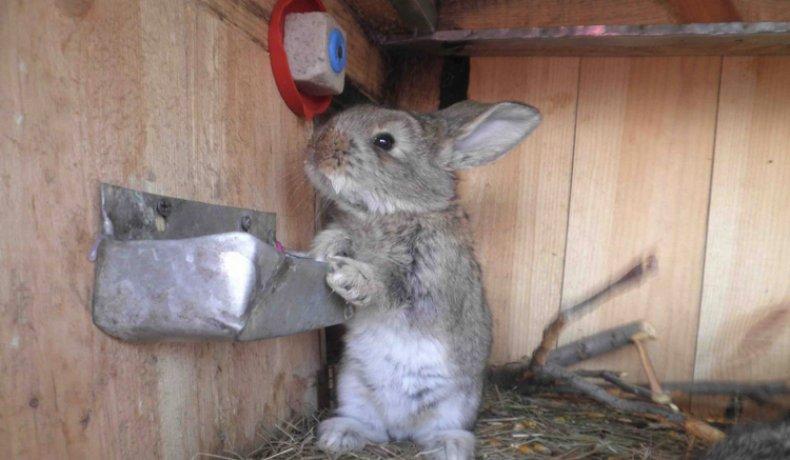
All three varieties require a quick reaction, because they can lead to the death of animals.
What can be done to avoid these problems?
A rabbit can live up to 3 days without food, without water it can withstand up to 6 hours. This speaks of the need for quick decision-making and seeking help.
To avoid losing animals, you need to follow these recommendations:
- Provide your pet or industrial livestock with a comfortable and calm living environment, avoiding stress.
- Make sure that cells and rooms are regularly cleaned, ventilated and disinfected.
- Create conditions for physical activity, mobility.
- Get regular check-ups with your veterinarian, follow the vaccination schedule.
- Provide only natural and fresh feed.
- Create an automatic drinker so that the water is clean, constantly available.
- Remove wires, household chemicals and cosmetics, plants and other dangerous items in places inaccessible to the animal.
- Comb out the animal during molting, give one prune without pits twice a week to remove any wool that has entered the stomach.
Paying attention to rabbits can save the animals from suffering and prolong their life.
